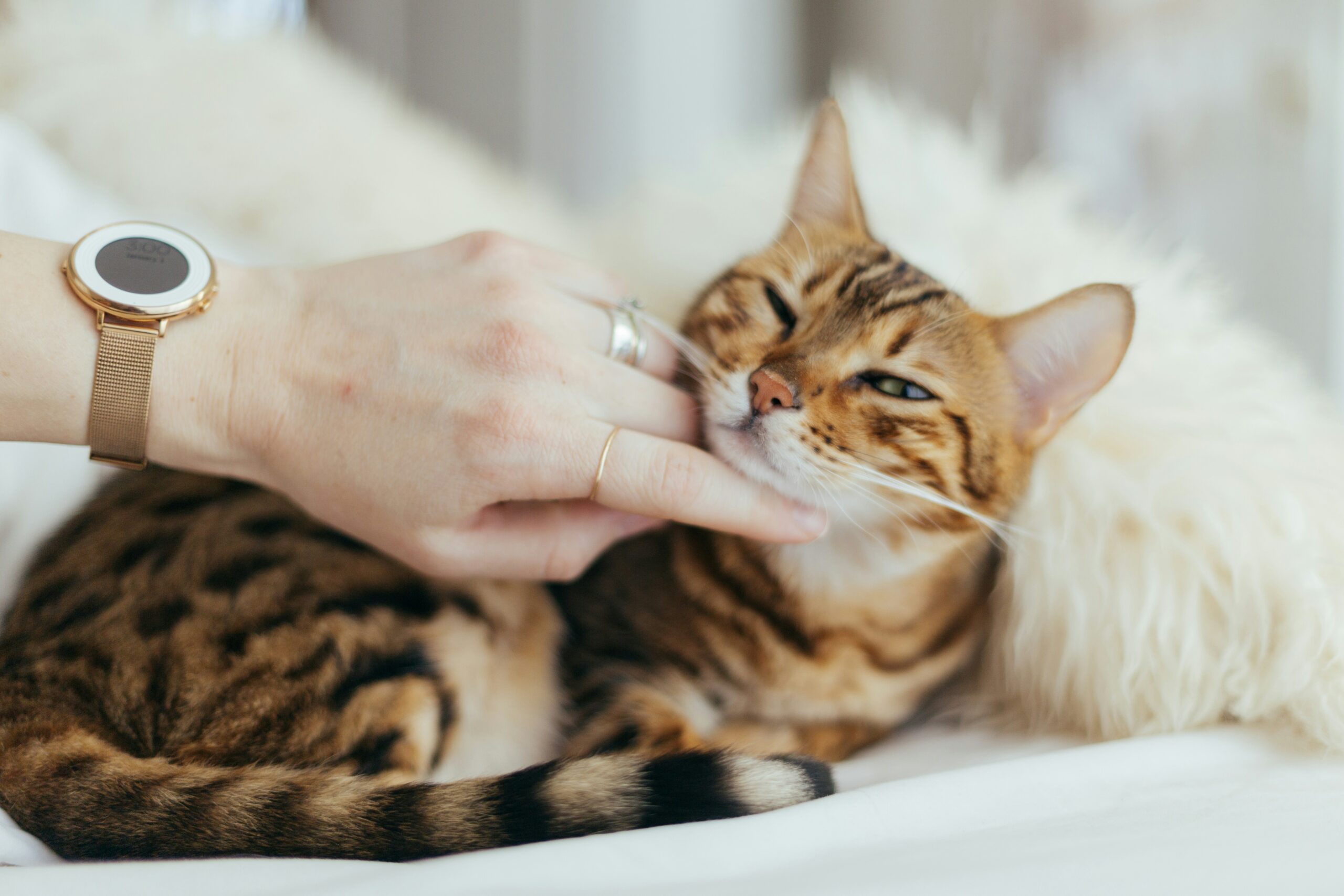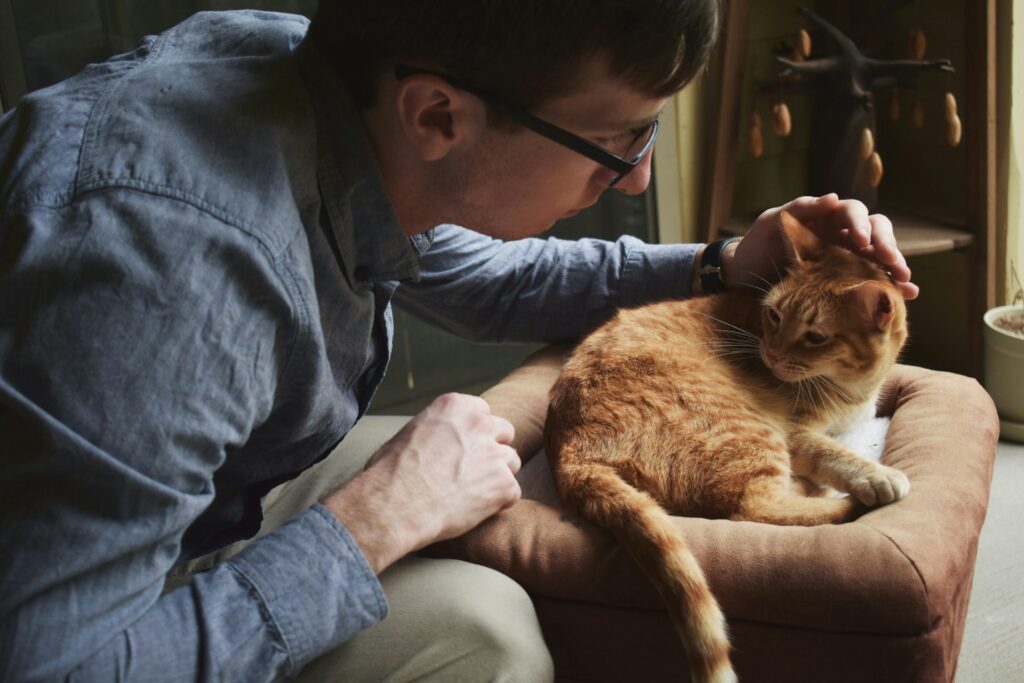
Can cats get colds? yes, Like humans, cats are also affected by colds, and the infection is called a Feline upper respiratory infection, which is not usually harmful to cats.
If left untreated, it can lead to a more severe and dangerous infection. So, it is important to monitor cats, especially kittens and senior cats, if they are affected by colds.
How cats get colds?
Cats can catch colds mainly because of bacteria or viruses. Like humans, cats can also contract flue from other cats or animals through sneezing droplets. Cats that spend a lot of time with other cats or in cat boarding facilities are at high risk of catching colds.
Common cold symptoms in cats
Every cat may have different symptoms, but the most common symptoms of cat colds are given below.
Sneezing and runny nose
The most common sign of cat colds is frequent sneezing with a runny nose. You may notice your cat pawing at its nose or shaking its head to clear the nasal passage for better breathing.
Coughing and wheezing
Viruses such as feline herpesvirus or feline calicivirus can cause irritation and inflammation in cat nasal passage leading to coughing and wheezing. If your cat frequently makes wheezing sounds, it could be a sign of cat cold.
Watery eyes & cat colds
Watery eyes are also an indication of cat colds that cause irritation and discomfort in cats. This irritation in the eyes can cause watery discharge, or you may even notice the cat having tears streaming down their face.
Fever with cat colds
A cat’s normal body temperature is 100.5°F to 102.5°F, but when there is a viral or bacterial infection, the cat’s immune system increases the body temperature to help fight off infection.it is important to visit a veterinarian if the cat has a body temperature more than the normal range.
Difference between a cat’s cold and other illnesses
It is crucial to differentiate the cat colds from other illnesses. It is difficult because many feline illnesses have similar symptoms but some key factors can help you in determining the underlying cause of illness.
Symptoms
Cats with colds usually have symptoms such as fever, coughing, and sneezing, as we discussed above. However, if these indications come with other symptoms such as vomiting, diarrhea, or urinary issues, then It can be a sign of another disease.
Duration
A cat cold usually lasts from one to two weeks. After this time frame, if the symptoms persist or worsen over time, it could be a sign of other underlying medical conditions.
Appetite
Decreased appetite because of nasal congestion is also a sign of cat colds. However, if the cat still refuses to eat after 24 hours, you should consult a veterinarian for any other underlying health issue.
Environmental factors
consider any recent changes in your cat’s environment that could contribute to their symptoms. Interaction with sick animals, stress, or change in behavior may intensify cold-like symptoms or other illnesses.
If you are unsure about your cat’s illness, it is important to visit your veterinarian for a proper diagnosis and appropriate treatment plan. Your vet will perform different diagnostic tests, such as imaging and blood tests, to find out the cause of the illness.
Treatment options for cat colds

It is essential to provide emotional support to your cat especially when they are sick due to a cold or other illness. Let them know you worry about their health. Here are some ways, you can provide emotional support to your cat, but always consult your vet before using any home remedies.
Steam treatment for cat colds
You can run your hot shower in the bathroom to create steam, then bring your cat into the room to breathe in moisture for a few minutes. The steam helps to clear the nasal passage otherwise, a humidifier is a great choice to keep the air moist in your room, which may help in relieving cat congestion and make breathing easier.
You can use a warm, damp cloth to gently wipe away any discharge coming out of your cat’s nose or eyes.
Rest and comfort
Allow your cat plenty of rest and provide them with a warm and comfortable place for recovery. Ensure that they have a cozy bed for their comfort and limit their exposure to stressors that can worsen their symptoms.
Make sure that they have access to fresh water and nutritious food at all times. You can also use some nutritious supplements such as L-lysine to boost the immune system to provide aid in fighting infection. But always consult your vet before giving any supplement to the cat.
Veterinary Care
If symptoms persist or worsen, it is important to seek veterinary care promptly. Your vet will decide the most suitable treatment option for your cat, such as antibiotics or antivirals.
How to prevent cats from catching colds?
You can adopt different strategies to prevent your cat from catching bacteria or viruses that cause respiratory infections. Here are some tips to help prevent your cat from catching colds.
Vaccination
Ensure your cat is up to date on vaccinations, Ask your vet for vaccination for common respiratory viruses such as feline herpesvirus and feline calicivirus that cause cat colds. These vaccinations help in boosting your cat’s immune system, which provides protection from such viruses.
Indoor environment
Offer a clean environment to your cat by cleaning their toys and beds. Always use pet-friendly disinfectant to clean the area where your cat spends much of their time to prevent the spread of bacteria or viruses.
If you have multiple cats or you are going to introduce a new cat into your family, make sure to quarantine the new cat in a separate room for a few days. If the cat shows no sign of illness or virus, then you can allow your new cat to interact with other felines.
Stress
Stress also contributes to weakening cat’s immune systems, which makes them more susceptible to viruses like colds. Always provide your cat with mental and physical stimulation by maintaining a stable and predictable routine. By offering a calm and peaceful environment, you can assist them in reducing their stress.
Conclusion
Cats can indeed catch colds, exhibiting symptoms such as sneezing, coughing, and watery eyes. However, proper vaccination, maintaining a clean environment, and stress reduction can minimize the risk of your cat catching a cold. If your cat becomes ill, you can provide them rest, hydration, and veterinary care to help in fast recovery.
By understanding the causes and symptoms of cat colds, you can better protect your feline friend’s respiratory health.
